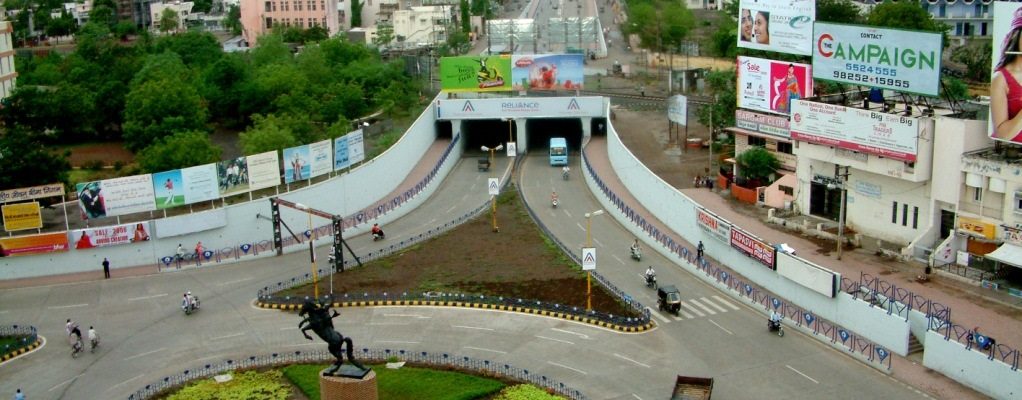CapaCITIES Project Cities get Star Ratings under ClimateSmart Cities Assessment Framework

The CapaCITIES project, funded by the Swiss Agency for Development and Cooperation, is working with 8 partner cities. Support was extended to the partner cities – Ahmedabad, Rajkot, Vadodara, Udaipur, Tiruchirappalli, Coimbatore, Siliguri, and Tirunelveli – to report to the ClimateSmart Cities Assessment Framework (CSCAF) 2.0. Cities received in-person and virtual support for data collection, policy analysis, collation of city action plans, reporting progress of climate action, data validation, and submission to the CSCAF portal.
The CapaCITIES project also provides technical support to the 8 cities for the preparation of Climate Resilient City Action Plans, bankable projects, and implementation of climate-resilient interventions. Capacities of local authorities are strengthened to plan, prepare, implement, and mainstream climate action. The first phase of the project (2016-19) supported 4 cities and the second phase is supporting 4 additional cities (2019-2023).
The CSCAF 2.0 is a framework for assessing cities on select climate-relevant parameters; the framework is administered on a yearly basis by the Ministry of Housing and Urban Affairs (MoHUA), Government of India, under the Smart Cities Mission. The CSCAF 2.0 consists of 28 diverse indicators across five categories. The indicators are progressive in nature to encourage cities to adopt appropriate actions, enabling them to improve their score in the future and consequently build climate resilience. A total of 126 cities (including 100 Smart Cities and 26 cities with a population over 500,000) participated in the second phase of CSCAF in September 2020.
Based on their performance, the 126 cities are assigned a star rating, from one star to five stars. Three CapaCITIES partner cities feature in the top 9 performing cities which have been awarded a 4-star rating. These cities are – Ahmedabad, Rajkot, and Vadodara.
It is evident from the results of the CSCAF V2.0 that the support extended by the CapaCITIES project to Phase I project cities, namely in Rajkot, Coimbatore, Udaipur, and Siliguri, has resulted in an improvement in climate performance.
The scoring of Rajkot (4-star city) in CSCAF 2.0 has significantly improved to 66% from 43% in CSCAF 1.0. Rajkot city improved performance in sectors like energy and green building, mobility and air, and water.
In Coimbatore (3-star city), the CSCAF 2.0 rating performance has improved from CSCAF 1.0. The city fared well under the mobility and air quality category, waste management category, and secured commendable scores in Energy and Green Buildings, Urban Planning, Green Cover & Biodiversity, and Water Management categories.
In Udaipur (3-star city), work done under the CapaCITIES project Phase I such as installation of AAQMS, e-rickshaw pilot, preparation of clean air action plan helped the city secure good scores under mobility and air quality category of CSCAF 2.0. The city has also scored well in the Waste Management category in CSCAF 2.0.
In Siliguri (2-star city), the quick-win (pilot) projects implemented and technical assistance provided under the CapaCITIES project, resulted in demonstrating considerable progress in adopting climate sensitive planning processes and fostering implementation of climate actions. The city scored well for “City Climate Action Plan” and “Extent of Non-Revenue Water” indicators, which was a result of the quick-win project implemented under CapaCITIES Phase I.
Phase II cities, namely Ahmedabad, Vadodara, Tiruchirappalli and Tirunelveli are learning from the experiences of Phase I cities and are in the process of developing climate action plans and adopting sustainable mobility initiatives, energy efficiency and renewable energy measures, plans and actions to improve urban biodiversity, and other prioritised climate actions.
With support from CapaCITIES Phase II project, Ahmedabad (4-star city) has shown significant improvement in CSCAF 2.0 with 71% marks and four-star rating. Ahmedabad is best performing city in mobility and air quality sector under CSCAF 2.0.
In Vadodra (4-star city), several initiatives taken by the Vadodara Municipal Corporation have helped the city significantly improve their CSCAF 2.0 scoring to 62% in comparison to 24% in CSCAF 1.0.
Tiruchirappalli (2-star city) has performed well with the overall score progressing from 24.8% (CSCAF 1.0) to 40.17% (CSCAF 2.0). Focusing more on waste management through well-planned door-to-door waste collection has increased the city’s scores from 33% in CSCAF 1.0 to 78% in CSCAF 2.0.
In Tirunelveli (2-Star City), the technical assistance for the development and implementation of the CRCAP prepared in CapaCITIES Phase II, with documentations of GHG emissions and vulnerability assessment, will help improve mitigation and adaptation potential to score better results in upcoming assessment framework, as in other cities as well.
In addition, the Smart City Awards for 2020 were given across the themes of Social Aspects, Governance, Culture, Urban Environment, Sanitation, Economy, Built Environment, Water, and Urban Mobility. Some interesting themes were added this year for the Sustainable Business model of ICCC and Innovation award, especially in COVID Management.
Indore and Surat won the City Award jointly this year for their overall development and three states namely Uttar Pradesh, Madhya Pradesh and Tamil Nadu won the State award.



